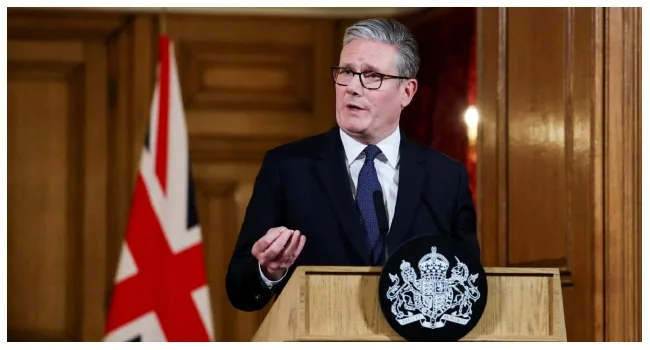The United Kingdom on Sunday unveiled new sentencing powers aimed at tightening community punishments and reducing reoffending, as part of its broader Plan for Change.
Under the new measures, criminals could be banned from pubs, concerts, sporting events, or even confined to specific zones. Judges will also be empowered to impose travel bans, driving restrictions, and other curbs on offenders’ freedoms.
The reforms are designed to toughen non-custodial sentences and send a clear message that crime carries consequences, whether offenders are behind bars or serving their sentence in the community.
As part of efforts to keep Britain safe, the government said offenders released from prison and placed under Probation Service supervision would face similar restrictions. An expanded mandatory drug testing regime will also be rolled out, including for those without a known history of substance abuse.
“Criminals without known drug habits will now also face routine testing. Those who break the rules risk being returned to court or sent back to prison, depending on the terms of their sentence,” the government said in a statement published on its website.
Lord Chancellor and Justice Secretary Shabana Mahmood said the changes reflect the government’s commitment to cutting crime and protecting the public.
“When criminals break society’s rules, they must be punished. Those serving their sentences in the community must also have their freedoms restricted,” she said. “These new punishments should serve as a reminder that, under this Government, crime does not pay.”
The public, she added, rightly expects the government to do everything in its power to ensure public safety.
Currently, courts can impose certain bans only in limited contexts — for instance, football-related restrictions for stadium offences. However, the government plans to change the law so such penalties can be applied more broadly, regardless of the crime or context.
The announcement comes as part of wider sentencing reforms intended to reduce crime and ensure that prisons never again run out of space for dangerous offenders.
Since July 2024, over 2,400 new prison places have been added. The government has committed £7 billion to deliver a total of 14,000 new places in response to a growing prison population.
Significant investment is also being directed toward the Probation Service. The annual budget, currently around £1.6 billion, is set to increase by up to £700 million by 2028/29.
In the past year alone, the number of probation officers has grown by 7%, with trainee recruitment rising by 15%. The government aims to recruit an additional 1,300 probation officers this year, building on the 1,000 recruited last year.
To boost efficiency, new technologies — including artificial intelligence — will be introduced to reduce paperwork and allow probation officers to focus on supervising high-risk offenders more closely.
“These reforms will help deliver a more robust justice system that protects communities and ensures offenders are held fully accountable for their actions,” the statement concluded.


